
Research
Two Malicious Rust Crates Impersonate Popular Logger to Steal Wallet Keys
Socket uncovers malicious Rust crates impersonating fast_log to steal Solana and Ethereum wallet keys from source code.
A collection of tweening (aka easing) functions implemented in Python. You can learn more about it in this blog post: https://inventwithpython.com/blog/2024/02/20/make-lively-movement-animation-with-pytweenings-tweening-functions/ and in the Nordic Game Jam talk by Martin Jonasson and Petri Purho at https://youtu.be/Fy0aCDmgnxg?si=8pgITaxjJSKFyBuB&t=159
All tweening functions are passed an argument of a float from 0.0 (the beginning of the path) to 1.0 (the end of the path) of the tween:
>>> pytweening.linear(0.5)
0.5
>>> pytweening.linear(0.75)
0.75
>>> pytweening.linear(1.0)
1.0
>>> pytweening.easeInQuad(0.5)
0.25
>>> pytweening.easeInQuad(0.75)
0.5625
>>> pytweening.easeInQuad(1.0)
1.0
>>> pytweening.easeInOutSine(0.75)
0.8535533905932737
>>> pytweening.easeInOutSine(1.0)
1.0
The getLine() function also provides a Bresenham line algorithm implementation:
>>> pytweening.getLine(0, 0, 5, 10)
[(0, 0), (0, 1), (1, 2), (1, 3), (2, 4), (2, 5), (3, 6), (3, 7), (4, 8), (4, 9), (5, 10)]
The getLinePoint() function finds (interpolates) a point on the given line (even if it extends before or past the start or end points):
>>> getLinePoint(0, 0, 5, 10, 0.0)
(0.0, 0.0)
>>> getLinePoint(0, 0, 5, 10, 0.25)
(1.25, 2.5)
>>> getLinePoint(0, 0, 5, 10, 0.5)
(2.5, 5.0)
>>> getLinePoint(0, 0, 5, 10, 0.75)
(3.75, 7.5)
>>> getLinePoint(0, 0, 5, 10, 1.0)
(5.0, 10.0)
PyTweening also provides iterators to get the XY coordinates in a for loop between two points (though some floating-point rounding errors naturally occur):
>>> import pytweening
>>> for x, y in pytweening.iterLinear(0, 0, 100, 150, 0.1): print(x, y)
...
0.0 0.0
10.0 15.0
20.0 30.0
30.000000000000004 45.00000000000001
40.0 60.0
50.0 75.0
60.0 90.0
70.0 105.0
80.0 119.99999999999999
89.99999999999999 135.0
100.0 150.0
>>> for x, y in pytweening.iterEaseOutQuad(0, 0, 100, 150, 0.1): print(x, y)
...
0.0 0.0
19.0 28.5
36.00000000000001 54.00000000000001
51.0 76.5
64.00000000000001 96.00000000000001
75.0 112.5
84.0 126.0
90.99999999999999 136.5
96.00000000000001 144.0
99.0 148.5
100.0 150.0
pytweening.linear()
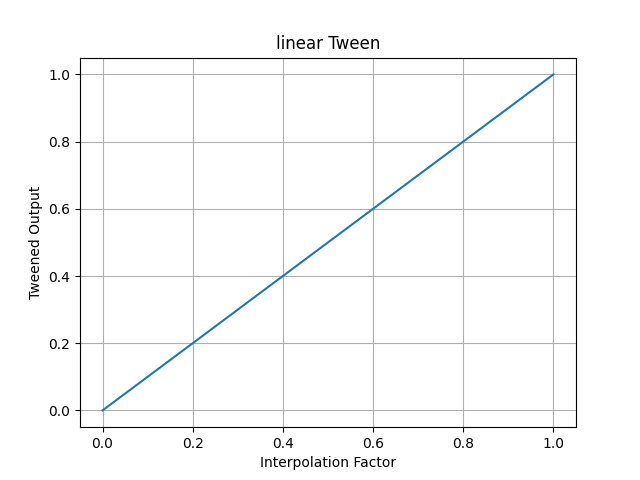
pytweening.easeInQuad()
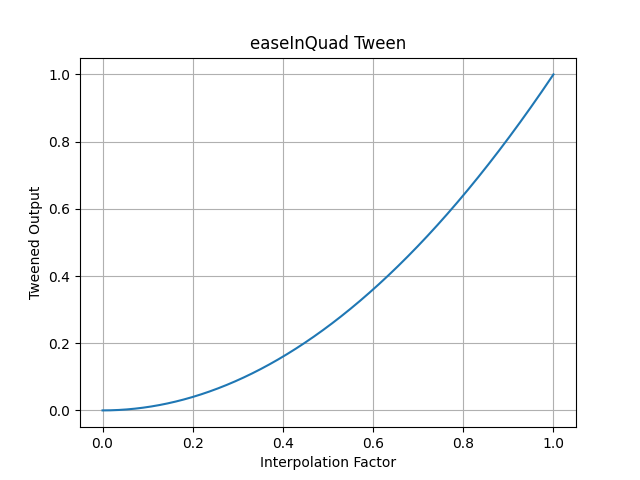
pytweening.easeOutQuad()
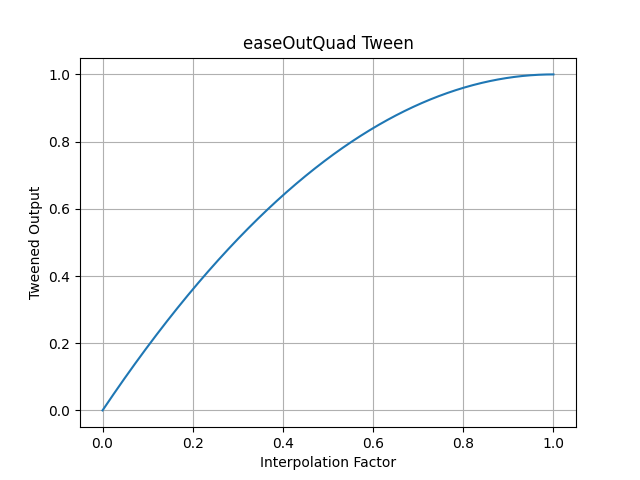
pytweening.easeInOutQuad()
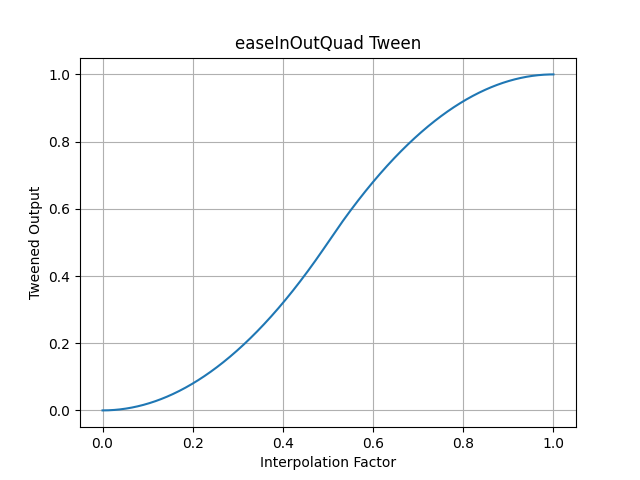
pytweening.easeInCubic()
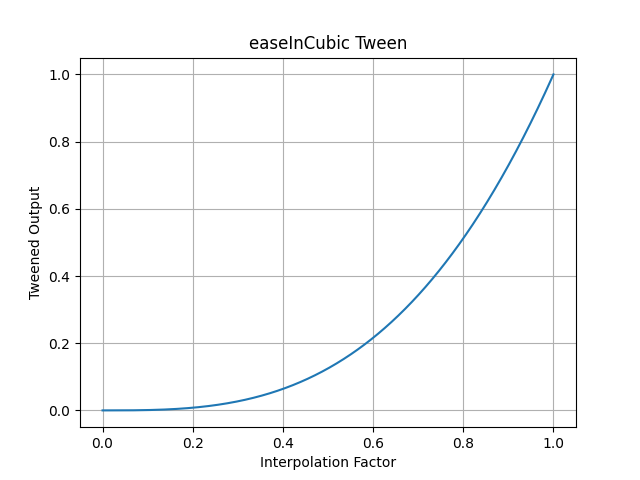
pytweening.easeOutCubic()
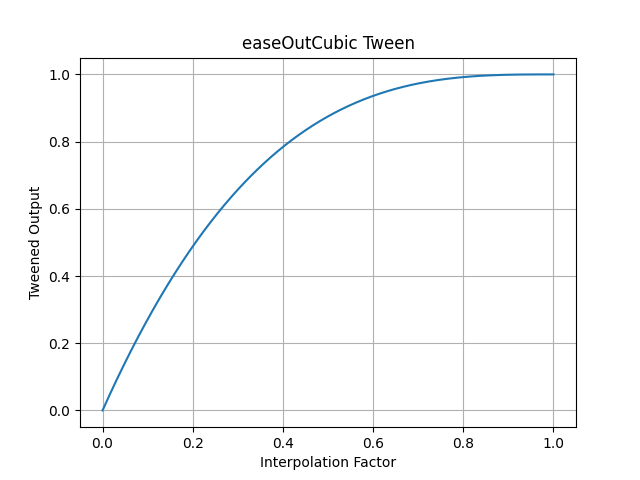
pytweening.easeInOutCubic()
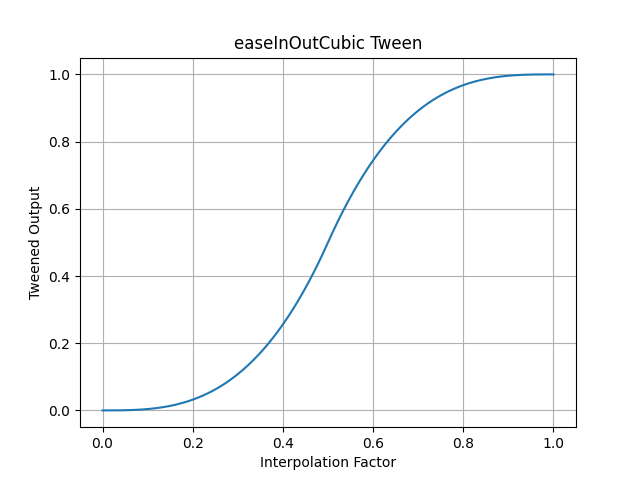
pytweening.easeInQuart()
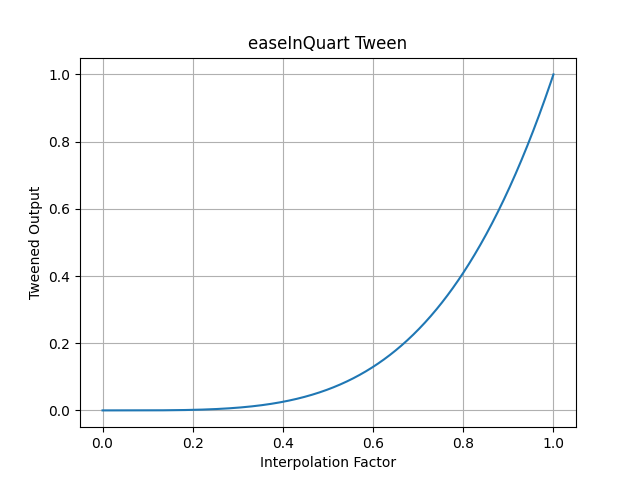
pytweening.easeOutQuart()
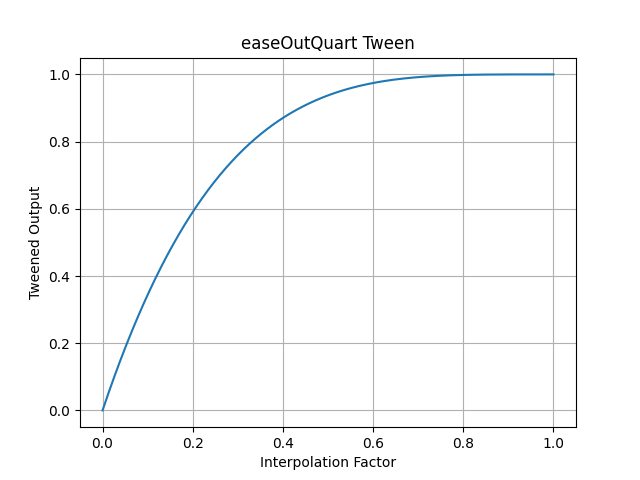
pytweening.easeInOutQuart()
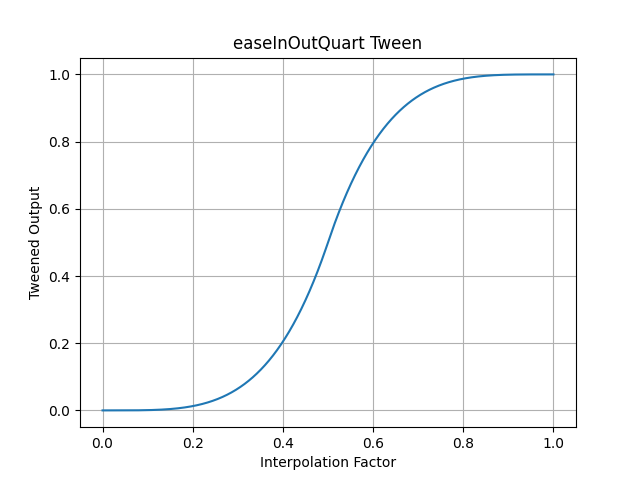
pytweening.easeInQuint()
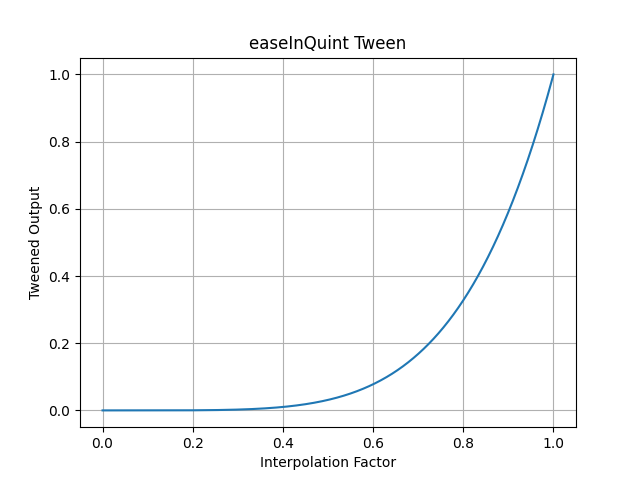
pytweening.easeOutQuint()
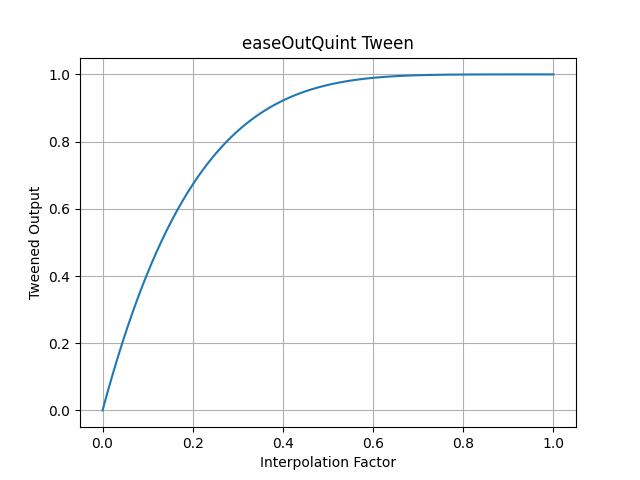
pytweening.easeInOutQuint()
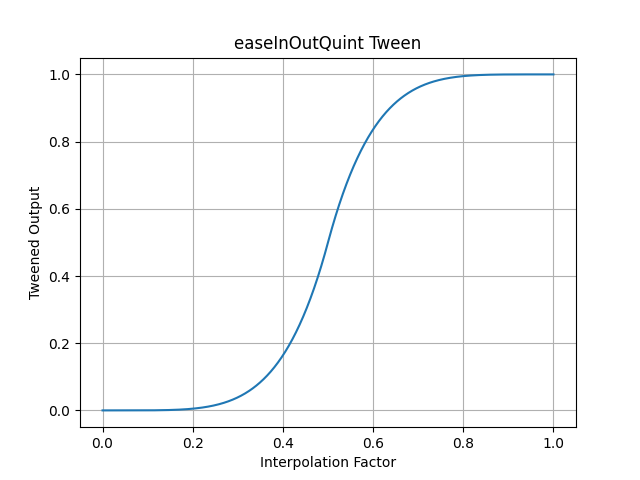
pytweening.easeInSine()
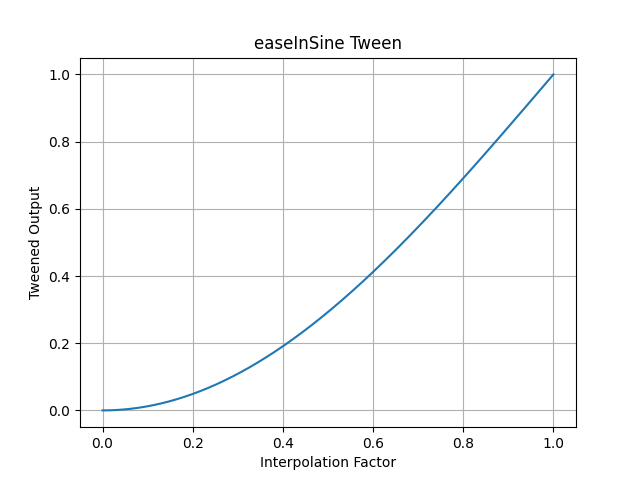
pytweening.easeOutSine()
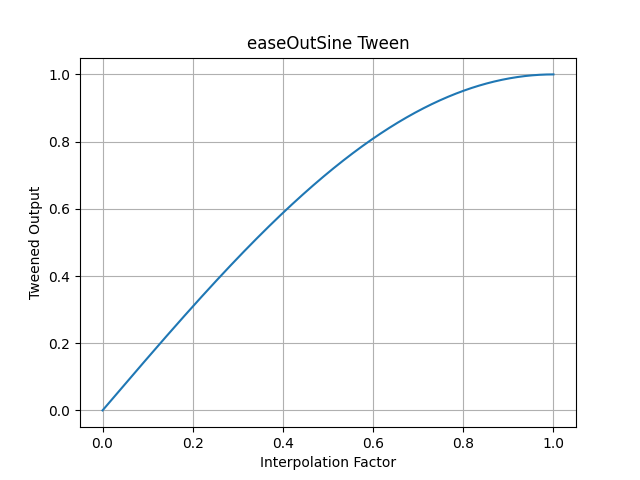
pytweening.easeInOutSine()
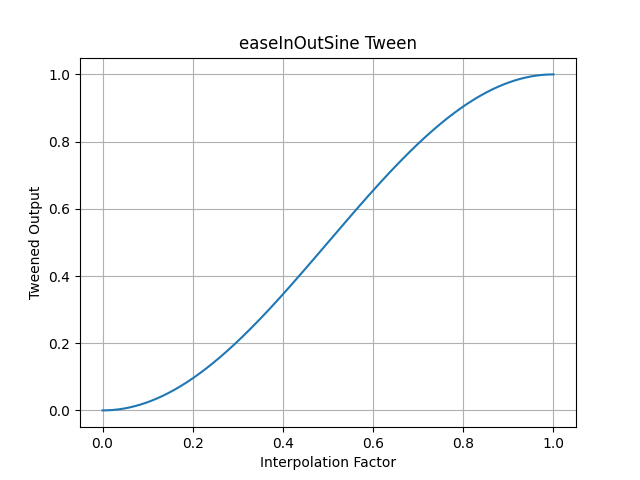
pytweening.easeInExpo()
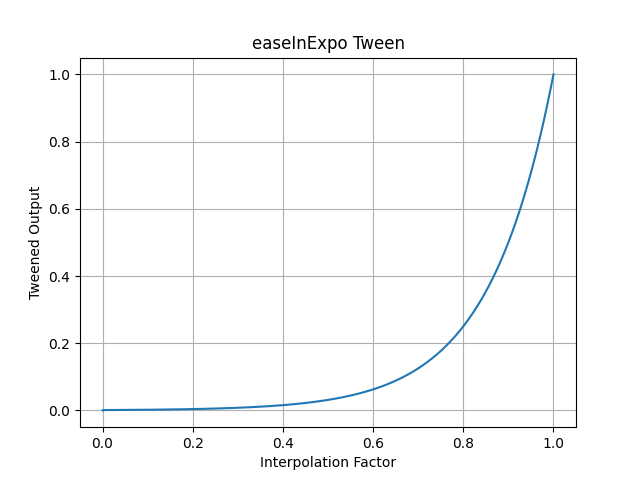
pytweening.easeOutExpo()
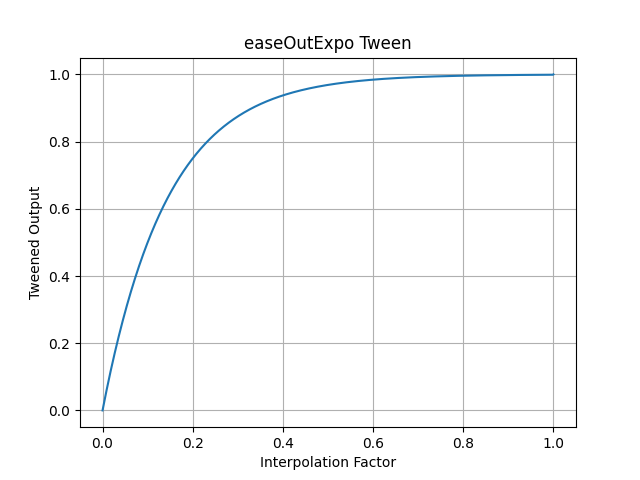
pytweening.easeInOutExpo()
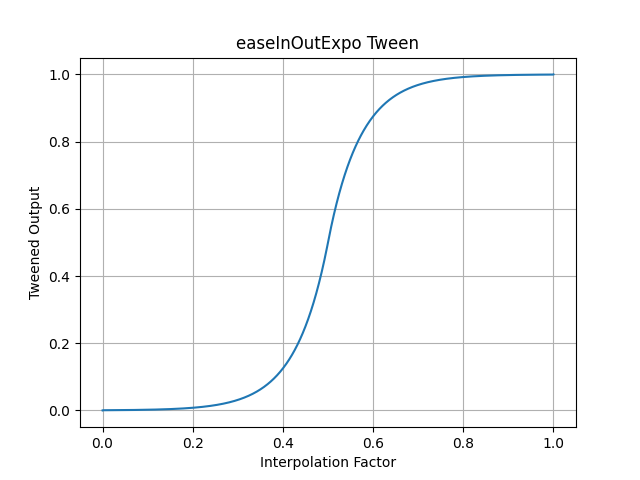
pytweening.easeInCirc()
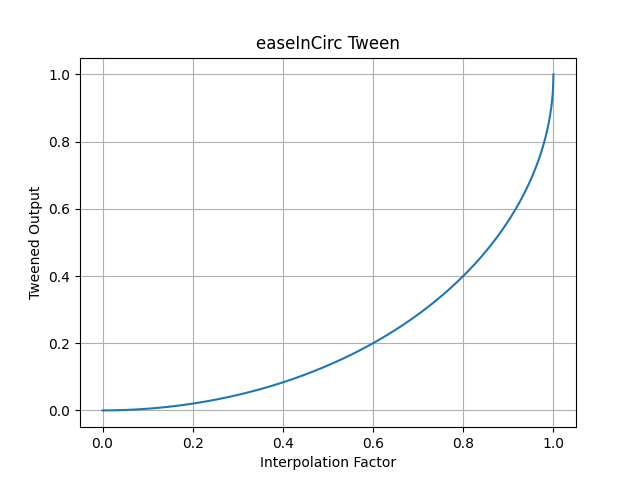
pytweening.easeOutCirc()
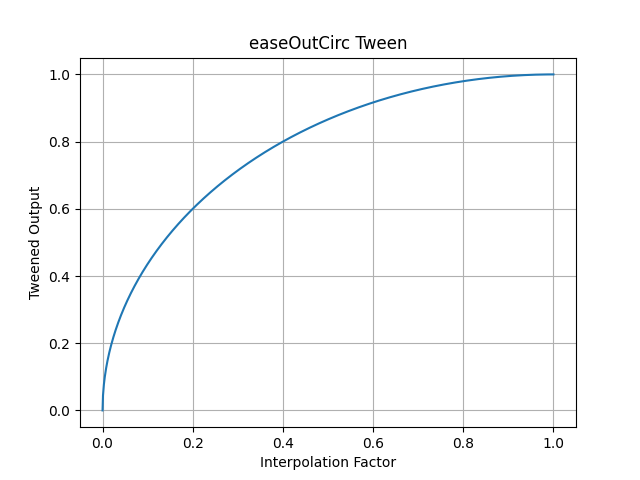
pytweening.easeInOutCirc()
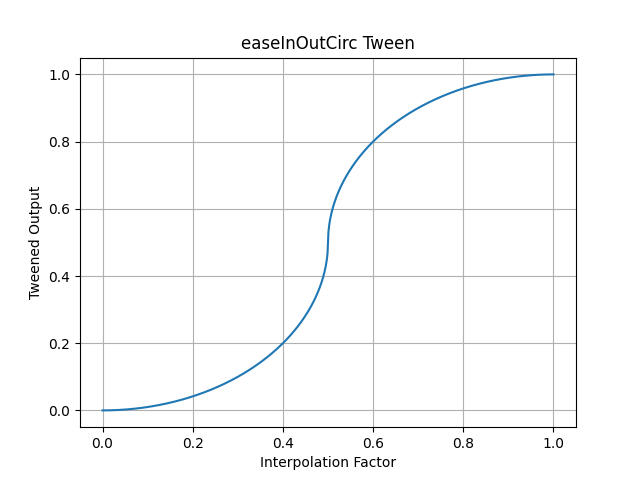
pytweening.easeInElastic()
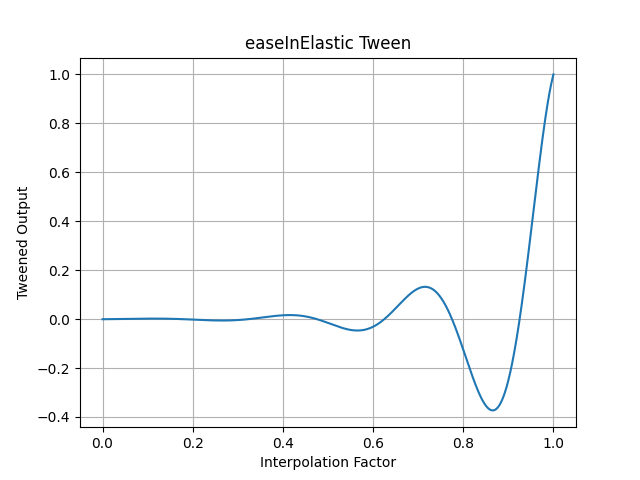
pytweening.easeOutElastic()
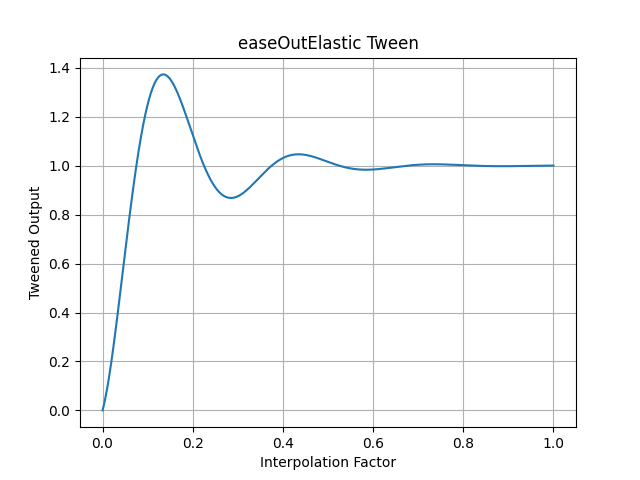
pytweening.easeInOutElastic()
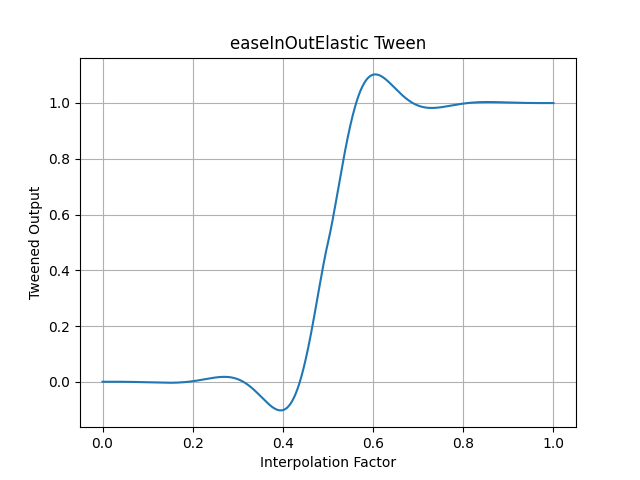
pytweening.easeInBack()
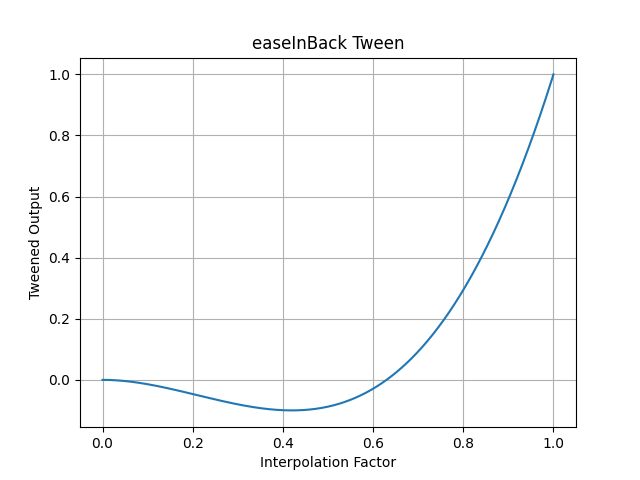
pytweening.easeOutBack()
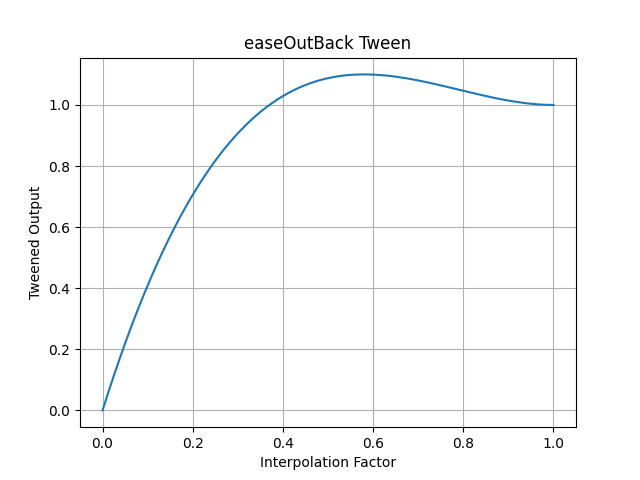
pytweening.easeInOutBack()
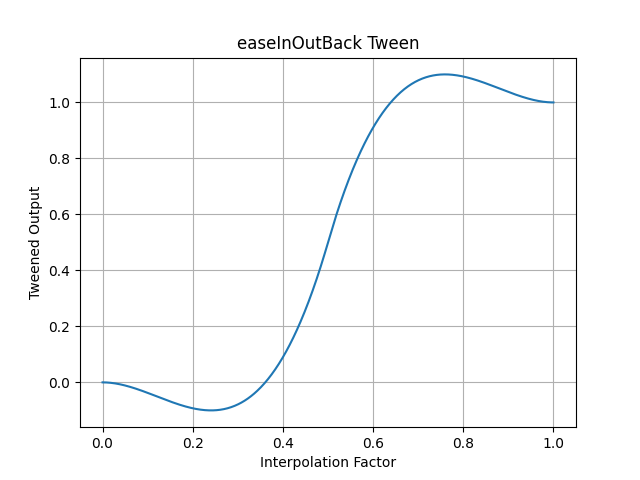
pytweening.easeInBounce()
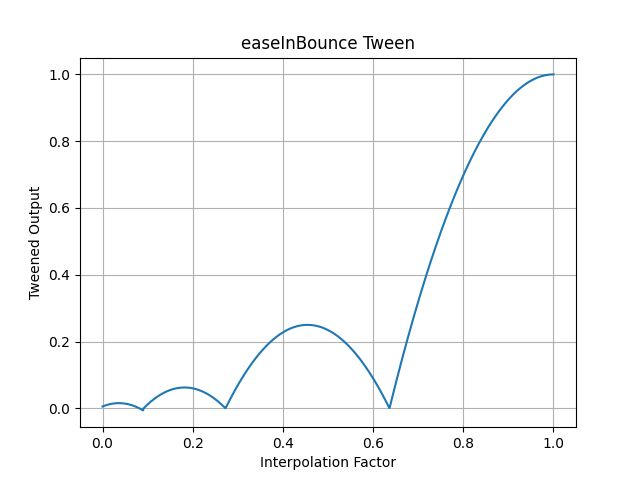
pytweening.easeOutBounce()
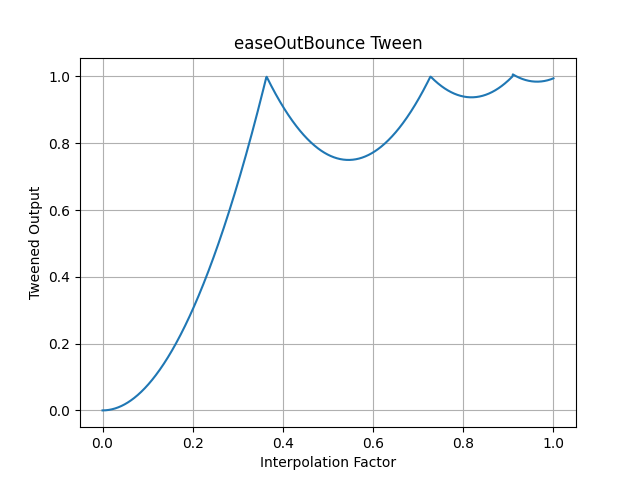
pytweening.easeInOutBounce()
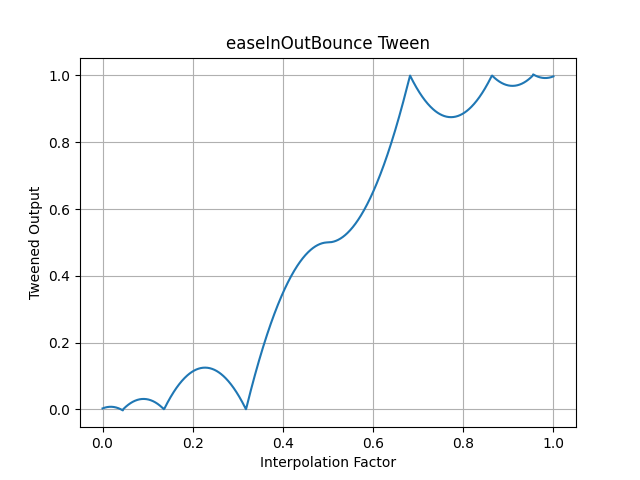
pytweening.easeInPoly() (default degree of 2)
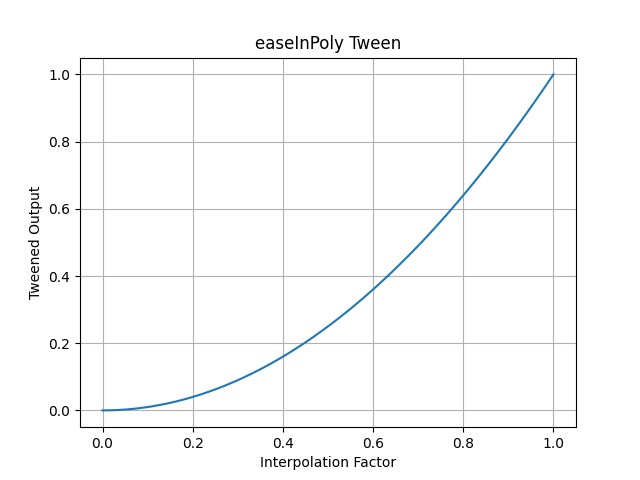
pytweening.easeOutPoly() (default degree of 2)
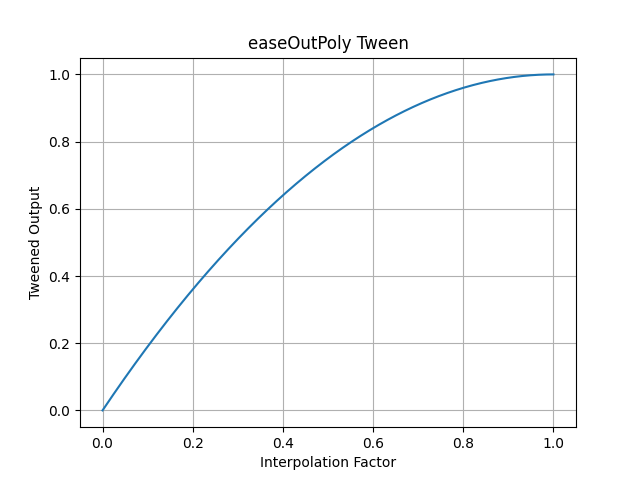
pytweening.easeInOutPoly() (default degree of 2)
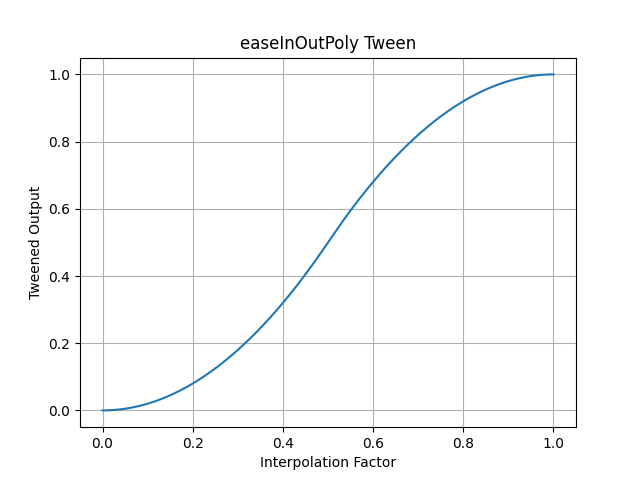
If you find this project helpful and would like to support its development, consider donating to its creator on Patreon.
FAQs
A collection of tweening (aka easing) functions.
We found that pytweening demonstrated a healthy version release cadence and project activity because the last version was released less than a year ago. It has 1 open source maintainer collaborating on the project.
Did you know?

Socket for GitHub automatically highlights issues in each pull request and monitors the health of all your open source dependencies. Discover the contents of your packages and block harmful activity before you install or update your dependencies.

Research
Socket uncovers malicious Rust crates impersonating fast_log to steal Solana and Ethereum wallet keys from source code.

Research
A malicious package uses a QR code as steganography in an innovative technique.

Research
/Security News
Socket identified 80 fake candidates targeting engineering roles, including suspected North Korean operators, exposing the new reality of hiring as a security function.